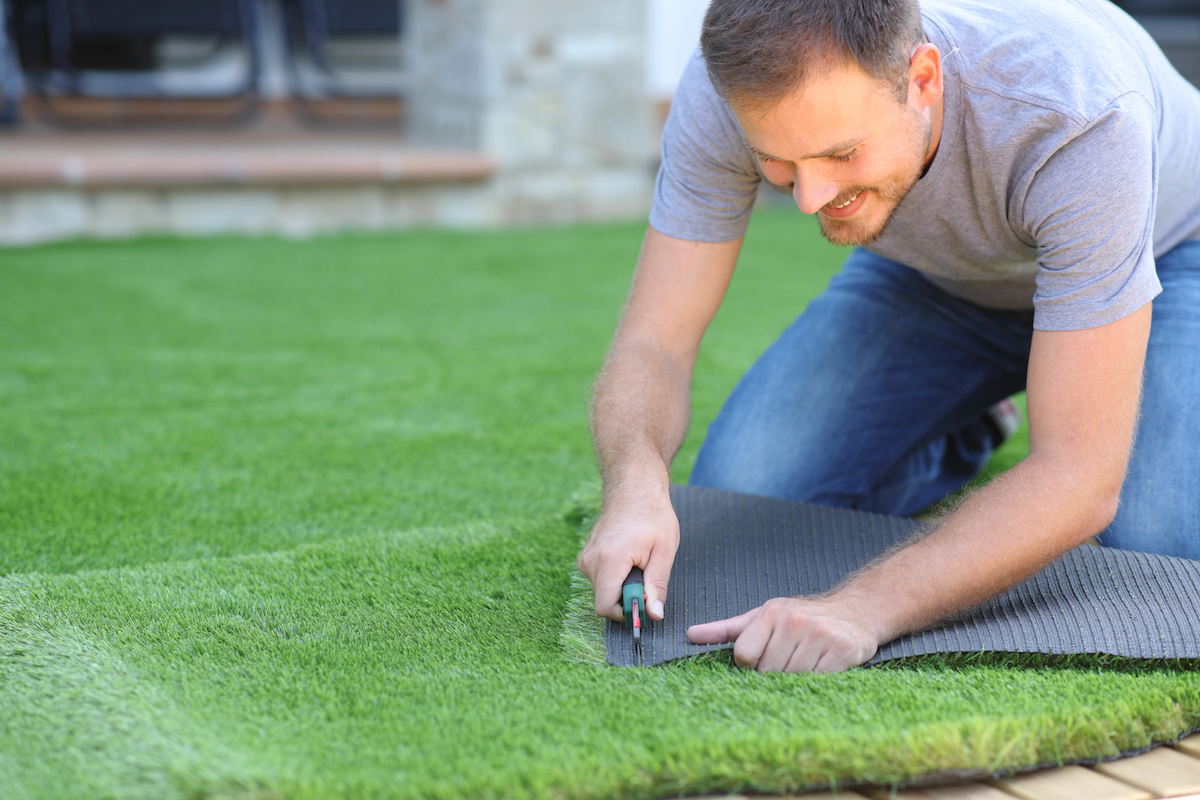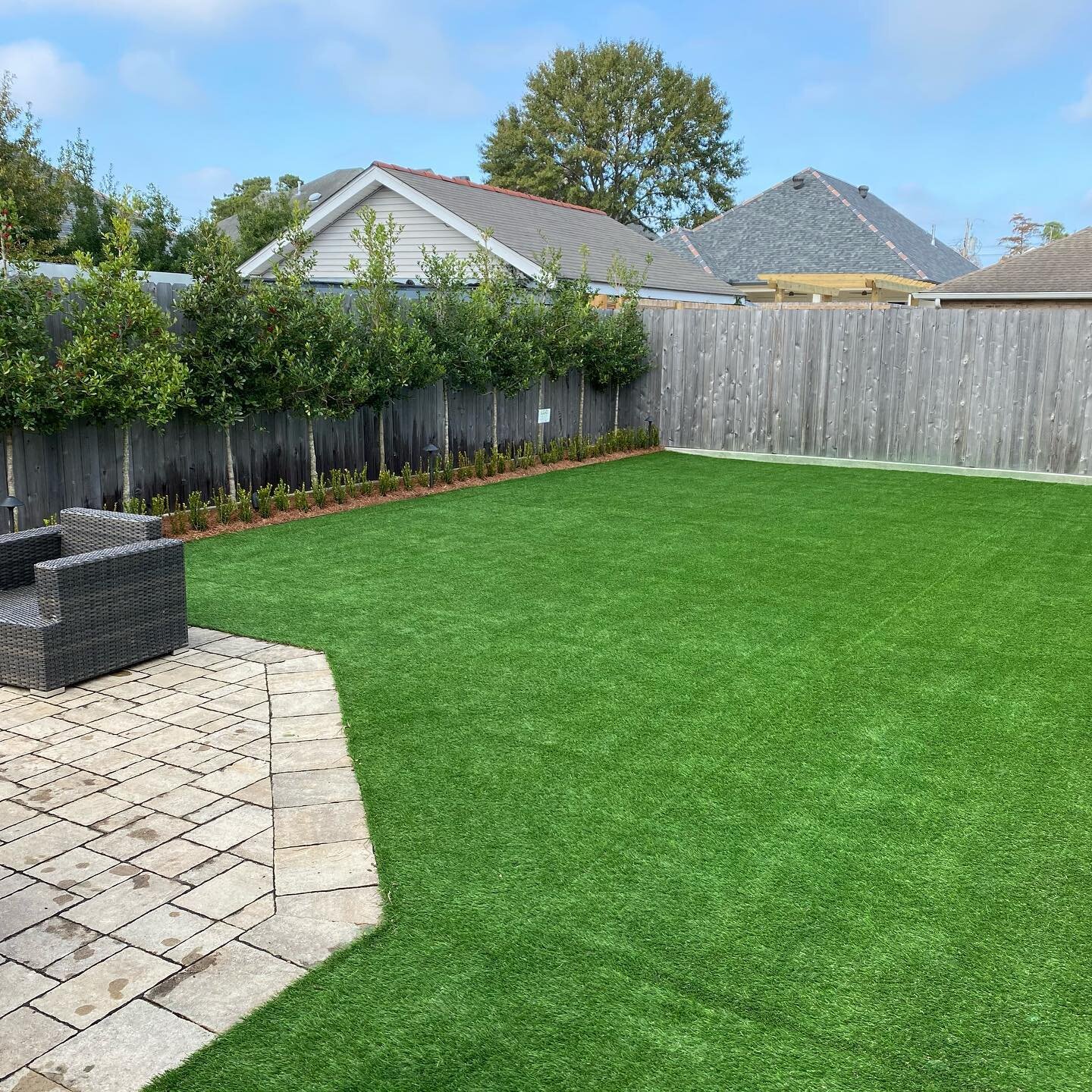Reputable Phoenix Turf Companies Offering Superior Synthetic Grass Installation
Explore the Environmental Benefits of Opting for Artificial Grass Solutions
The adoption of synthetic grass remedies provides an engaging opportunity to resolve pushing ecological difficulties. By considerably lowering water use and decreasing the application of unsafe chemicals, these options not only advertise lasting landscape design yet also secure regional environments. Moreover, the lower carbon footprint connected with decreased upkeep tasks contributes to a more sustainable technique to land administration. The implications of these benefits extend past plain preservation initiatives, increasing inquiries regarding their lasting impact on habitat conservation and total eco-friendly equilibrium. Exploring these measurements discloses a complicated interaction worth thinking about.
Water Conservation Conveniences
Among the most substantial advantages of artificial turf is its ability to save water. Typical lawn lawns need considerable irrigation, specifically in areas prone to dry spell or water constraints. In comparison, synthetic grass does not need watering, significantly minimizing the total demand for water sources. This feature is specifically advantageous in dry regions where water deficiency is a pressing concern.
By eliminating the demand for normal watering, fabricated lawn contributes to sustainable landscape techniques and helps reduce the ecological impact of excessive water consumption. The conservation of water prolongs to the decrease of drainage, which can lead to soil disintegration and waterway air pollution.
Furthermore, the installment of artificial grass permits homeowners and districts to designate water sources extra efficiently, concentrating on vital usages such as alcohol consumption water and agriculture. The change in the direction of artificial turf not only promotes liable water use yet likewise lines up with broader ecological objectives aimed at preserving all-natural resources.
As neighborhoods progressively prioritize sustainability, the water preservation benefits of artificial grass present an engaging case for its adoption in industrial and household landscaping projects.
Lowered Chemical Use
The shift to synthetic grass significantly decreases the reliance on chemical treatments commonly utilized in all-natural turf upkeep. Traditional grass monitoring commonly includes the application of chemicals, herbicides, and plant foods to advertise development and control insects. These chemicals can pose dangers to human wellness, neighborhood wildlife, and the environment, adding to soil and water contamination.
In comparison, man-made lawn removes the requirement for these hazardous compounds. Once set up, it needs minimal upkeep, primarily containing routine cleansing and occasional infill replenishment. This reduction in chemical usage not only benefits the immediate environment but additionally adds to wider environmental security. By decreasing the release of synthetic compounds right into the ecological community, man-made grass promotes much healthier soil and water supply.
In addition, the absence of chemical overflow related to fabricated lawn setups aids secure neighborhood rivers from pollution, supporting aquatic life and maintaining biodiversity. Artificial turf companies phoenix. As communities progressively focus on sustainable practices, going with synthetic grass presents a sensible option that aligns with ecological preservation objectives. With this shift, residential property proprietors can enjoy rich eco-friendly rooms without endangering eco-friendly health, leading the way for a more lasting future
Lower Carbon Impact

Furthermore, the setup of synthetic grass can cause significant water preservation. All-natural yards require substantial amounts of water for irrigation, which not just adds to the carbon impact connected with water removal and treatment however also strains local water resources. On the other hand, man-made lawn needs very little upkeep, calling for no watering, therefore considerably decreasing water usage and its associated power prices.
Furthermore, the durability of synthetic grass adds to its decreased carbon impact. With a life-span of as much as 15 years or more, the need for frequent replacements is diminished, resulting in less waste and lower power consumption in manufacturing and taking care of traditional turf options. On the whole, man-made turf presents a sustainable alternative for ecologically aware landscaping.
Environment Conservation
Environment preservation is a crucial factor to consider in the discussion over landscape design options, especially when contrasting artificial turf to go to this website natural yard. All-natural turf lawns commonly require extensive upkeep, consisting of using plant foods, herbicides, and pesticides, which can negatively impact local ecological communities. These chemicals can leach right into the soil and waterways, hurting native vegetation and fauna and interfering with neighborhood habitats.
In comparison, synthetic grass offers a chance to minimize the eco-friendly impact of landscape design. By choosing artificial turf, homeowners can reduce the interruption of all-natural environments linked with typical yard care methods. Synthetic grass gets rid of the requirement for damaging chemicals, consequently securing neighboring wild animals and maintaining the integrity of surrounding ecosystems. The installation of man-made turf can lead to the conversion of former lawn locations into more biodiverse landscapes, such as pollinator gardens or native plant locations, which can sustain neighborhood wild animals.
Ultimately, the change to synthetic grass not only conserves water and minimizes maintenance efforts but likewise fosters a much more unified partnership in between human tasks and the natural atmosphere, advertising environment preservation in the procedure.
Long-Term Sustainability
Long-term sustainability is a crucial aspect in assessing the benefits of synthetic grass over traditional grass yards. Among one of the most considerable advantages of synthetic grass is its toughness; it can last as much as 15-20 years with minimal maintenance, whereas all-natural lawn requires frequent reseeding and substitute. This longevity decreases the demand for continuous sources, such as water, fertilizers, and pesticides, which are essential for keeping a healthy and balanced grass yard.
Additionally, synthetic grass adds to a reduction in carbon discharges related to yard care tools. Standard lawns often need gas-powered lawn mowers, trimmers, and blowers, every one of which add to air pollution. Arizona turf. On the other hand, man-made turf eliminates the need for such devices, advertising a cleaner environment
Moreover, the production of synthetic grass increasingly utilizes recycled products, improving get more its sustainability profile. As manufacturers take on environment-friendly techniques, the ecological impact of synthetic grass remains to diminish.

Verdict
The fostering of artificial turf remedies presents substantial ecological advantages, including significant water conservation, lowered reliance on hazardous chemicals, and a reduced carbon impact. Moreover, synthetic turf help in preserving all-natural habitats by minimizing land disruption and advertising long-lasting sustainability with making use of sturdy products. Jointly, these elements highlight the potential of synthetic grass to add positively to ecological wellness and offer a feasible alternative to conventional landscape design techniques in a significantly resource-conscious globe.
In comparison, artificial lawn does not require watering, considerably minimizing the overall need for water resources. By decreasing the launch of synthetic substances right into the community, man-made turf advertises healthier dirt and water systems.
Moreover, the setup of man-made lawn can result in considerable water preservation. In comparison, synthetic turf requires very little upkeep, calling for no watering, thus considerably decreasing water use and its associated power prices.
